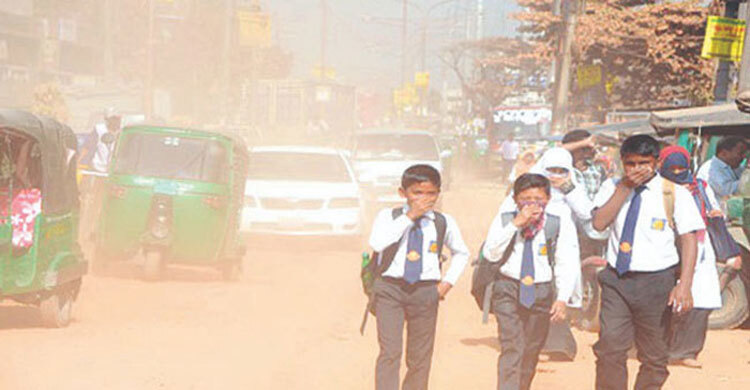Dhaka no longer world’s most polluted city

Here's some good news. Dhaka is no longer the world's most polluted city. That's Lahore now.
On Wednesday, Dhaka occupied the seventh position in the list of world cities with the worst air quality. It's air quality index (AQI) was recorded at 178 around 10 am, which is considered 'unhealthy for sensitive groups', reports UNB.
The city of Lahore in Pakistan occupied the first place with an AQI score of 229. The second and third spots were grabbed by Delhi of India and Thailand’s Chiang Mai, respectively.
An AQI between 100 and 200 is considered 'unhealthy for sensitive groups'. Similarly, an AQI between 201 and 300 is said to be 'poor', while a reading of 301 to 400 is considered 'hazardous', posing serious health risks to residents.
AQI, an index for reporting daily air quality, is used by government agencies to inform people how clean or polluted the air of a certain city is, and what associated health effects might be a concern for them.
In Bangladesh, the overall AQI is based on five criteria pollutants - Particulate Matter (PM10 and PM2.5), NO2, CO, SO2, and Ozone (O3).
The Department of Environment has also set national ambient air quality standards for these pollutants.
Dhaka has long been grappling with air pollution issues. Generally, Dhaka’s air starts getting fresh when monsoon rains begin in mid-June. The air remains mostly acceptable from June to October.
In February last year, Bangladesh's Environment, Forests and Climate Change Minister Md Shahab Uddin admitted that air pollution levels in the capital "has reached an extreme level". "This is mainly due to uncontrolled discharge of dust from construction projects, smoke from vehicles and brick kilns," he told UNB.
Besides, a report by the Department of Environment (DoE) and the World Bank in March 2019 also pointed out that the three main sources of air pollution in Dhaka "are brick kilns, fumes from vehicles and dust from construction sites".
Air pollution consistently ranks among the top risk factors for death and disability worldwide. Breathing polluted air has long been recognised as increasing a person’s chances of developing heart disease, chronic respiratory diseases, lung infections and cancer, according to several studies.
As per the World Health Organization (WHO), air pollution kills an estimated seven million people worldwide every year, largely as a result of increased mortality from stroke, heart disease, chronic obstructive pulmonary disease, lung cancer and acute respiratory infections.
Over 80 percent living in urban areas which monitor air pollution are exposed to air quality levels that exceed WHO guideline limits, with low- and middle-income countries most at risk.







